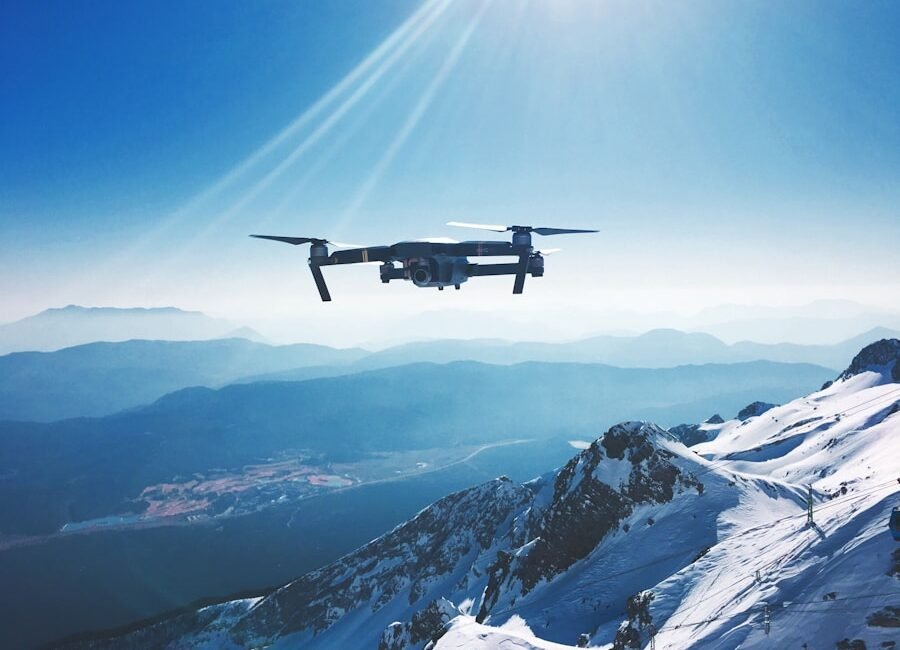Drone batteries are an essential component of any unmanned aerial vehicle (UAV). They provide the power necessary to keep the drone in flight and operate its various systems. Understanding the basics of drone batteries is crucial for any drone pilot, as it can affect the performance and longevity of the drone.
Drone batteries are typically lithium polymer (LiPo) batteries, which are known for their high energy density and lightweight properties. They are rechargeable and provide the necessary power for the drone to fly for a certain amount of time. The capacity of a drone battery is measured in milliampere-hours (mAh), which indicates how much energy the battery can store. The voltage of the battery is also an important factor, as it determines the power output of the battery. Understanding these basic concepts can help drone pilots make informed decisions when it comes to choosing and using drone batteries.
Tips for Extending Drone Battery Life
Extending the life of a drone battery is essential for maximizing the performance and longevity of a drone. There are several tips that drone pilots can follow to ensure that their batteries last as long as possible. One important tip is to avoid overcharging or over-discharging the battery, as this can lead to damage and reduced battery life. It is also important to store the batteries at the proper voltage and temperature to prevent degradation.
Another tip for extending drone battery life is to avoid exposing the batteries to extreme temperatures, as this can affect their performance and longevity. Additionally, it is important to use the correct charger for the specific type of battery, as using the wrong charger can lead to overcharging or undercharging, both of which can damage the battery. Following these tips can help drone pilots get the most out of their batteries and ensure that they perform optimally for as long as possible.
Proper Drone Battery Maintenance
Proper maintenance of drone batteries is crucial for ensuring their longevity and performance. One important aspect of battery maintenance is to regularly inspect the batteries for any signs of damage or wear. This can include checking for bulging or swelling, which can indicate that the battery is damaged and needs to be replaced. It is also important to keep the batteries clean and free of any debris or dirt, as this can affect their performance.
Another important aspect of drone battery maintenance is to store the batteries properly when not in use. This includes storing them at the correct voltage and temperature, as well as in a safe and secure location. It is also important to regularly cycle the batteries by fully charging and discharging them, as this can help maintain their capacity and performance. By following these maintenance tips, drone pilots can ensure that their batteries last as long as possible and perform optimally.
Factors Affecting Drone Battery Performance
There are several factors that can affect the performance of a drone battery. One important factor is the temperature, as extreme heat or cold can affect the capacity and output of the battery. It is important to keep the batteries within their recommended temperature range to ensure optimal performance. Another factor that can affect battery performance is the age and usage of the battery, as older batteries may not hold their charge as well as new ones.
The type of drone and its specific power requirements can also affect battery performance, as some drones may require more power than others. Additionally, the way in which the battery is used, such as how often it is charged and discharged, can affect its performance over time. By understanding these factors, drone pilots can take steps to mitigate their effects and ensure that their batteries perform optimally.
Choosing the Right Drone Battery
Choosing the right drone battery is crucial for ensuring optimal performance and longevity. There are several factors to consider when choosing a drone battery, including its capacity, voltage, and compatibility with the specific drone. It is important to choose a battery with a capacity that meets the power requirements of the drone, as using a battery with too low of a capacity can lead to reduced flight time.
The voltage of the battery is also an important consideration, as it determines the power output of the battery. It is important to choose a battery with the correct voltage for the specific drone to ensure that it operates properly. Additionally, it is important to choose a battery that is compatible with the specific drone model, as using an incompatible battery can lead to damage and reduced performance. By considering these factors, drone pilots can choose the right battery for their specific needs and ensure optimal performance.
Common Mistakes to Avoid with Drone Batteries
There are several common mistakes that drone pilots should avoid when it comes to using and maintaining their batteries. One common mistake is overcharging or over-discharging the battery, as this can lead to damage and reduced battery life. It is important to follow the manufacturer’s guidelines for charging and discharging the battery to ensure that it lasts as long as possible.
Another common mistake is using the wrong charger for the specific type of battery, as this can lead to overcharging or undercharging, both of which can damage the battery. It is important to use the correct charger for the specific type of battery to ensure that it charges properly and does not become damaged. Additionally, it is important to avoid exposing the batteries to extreme temperatures, as this can affect their performance and longevity. By avoiding these common mistakes, drone pilots can ensure that their batteries last as long as possible and perform optimally.
Future Developments in Drone Battery Technology
The future of drone battery technology looks promising, with ongoing developments aimed at improving performance and longevity. One area of development is in increasing energy density, which would allow for longer flight times and improved performance. Researchers are also working on developing safer and more reliable battery chemistries that are less prone to damage and degradation.
Another area of development is in improving charging technology, with advancements aimed at reducing charging times and improving overall efficiency. Additionally, there are ongoing efforts to develop smart battery management systems that can monitor and optimize battery performance in real-time. These developments have the potential to revolutionize drone battery technology and improve overall performance and longevity.
In conclusion, understanding drone battery basics, following tips for extending battery life, proper maintenance, considering factors affecting performance, choosing the right battery, avoiding common mistakes, and keeping an eye on future developments in technology are all crucial aspects of ensuring optimal performance and longevity of drone batteries. By following these guidelines, drone pilots can maximize their flight time and overall performance while minimizing potential issues with their batteries.








